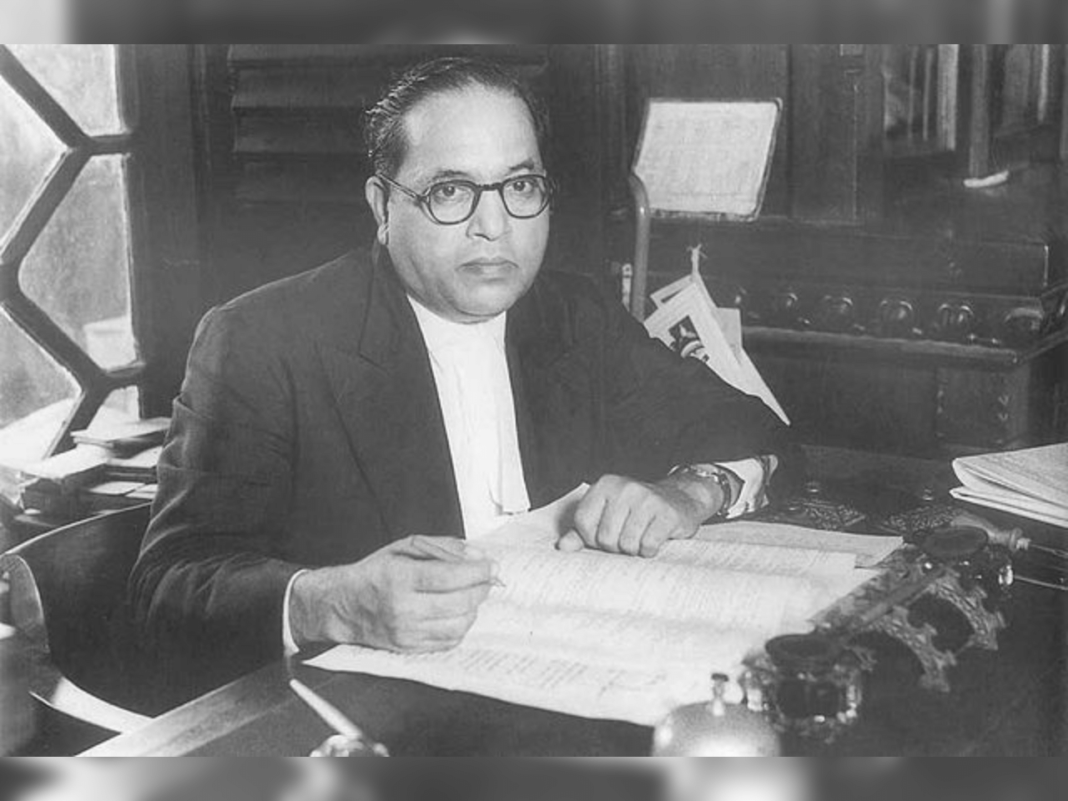New Delhi: Bhimrao Ramji Ambedkar or B. R. Ambedkar was a social reformer, economist and jurist who led the committee that drafted the Constitution of India.
Also, he was the first Law and Justice minister of India after it gained Independence from the British colonial yoke. Ambedkar, a lifelong crusader against untouchability and caste-based discrimination in our society, also propagated the Dalit Buddhist movement. Even though Ambedkar reluctantly agreed with Mahatma Gandhi regarding the Poona Pact on the reservation of electoral seats for the backward classes in British India’s legislature, he rejected the latter’s political methods.
The chief architect of the Indian Constitution concluded that Dalits had to leave Hinduism and convert to another religion to find prosperity. The conversion to Buddhism On October 14, 1956, weeks before his death on December 6, Ambedkar publicly converted to Buddhism, with his version being called Navayana or Neo-Buddhism and the main book on this topic is his ‘The Buddha and His Dhamma’. Along with Ambedkar, over three lakh of his followers also converted to Buddhism in the public ceremony held at Deekshabhoomi, Nagpur.
On October 16, 1956, Ambedkar performed another mass religious conversion ceremony to Buddhism at Chandrapur. After converting to Buddhism, Ambedkar made 22 vows and asked his followers to do the same. All those who converted or still convert to Neo-Buddhism have to abide by the vows as they act as guidelines of the social revolution that motivates human instincts.
What are the 22 vows? The 22 vows prescribed by B. R. Ambedkar are: People converting to Neo-Buddhism will not harbour faith in Lord Mahadev, Lord Vishnu and Lord Brahma and won’t worship them.
Also, they won’t harbour faith in Lord Krishna and Lord Rama, who are the avatars of Lord Vishnu. They will have no faith in Goddess Parvati, Lord Ganesha and other gods and goddesses of Hindus. The followers of Neo-Buddhism would not believe in the incarnation of the gods.
Ambedkar asks his followers not to believe that Lord Buddha was an incarnation of Lord Vishnu. The followers will refrain from performing ‘Shraddha’ and ‘Pind daan’. The followers should not act in such a way that violates the values and teachings of Lord Buddha.
Brahmins should not be allowed to perform any ceremony for them as Ambedkar considered them to be an obstacle to social equality. The next two vows are believing in the equality of human beings and striving to establish that equality. In the next two vows, Ambedkar asks his followers to abide by Lord Buddha’s Noble Eightfold Path and ten Paramitas.
Every person must have compassion and kindness for all living beings and protect them. In the next four vows, Ambedkar forbids his followers from stealing, telling lies, committing carnal sins, and consuming intoxicants like liquor, drugs, etc. Everyone must practice compassion and kindness in everyday life.
The 19th vow says that the followers have renounced Hinduism “which disfavors humanity and impedes the advancement and development of humanity” and have adopted Buddhism as their religion. In the next vow, the followers believe that Lord Buddha’s Dhamma is the only true religion. The last two vows state that after converting to Buddhism, a follower has had a re-birth and the person should lead a life as per the Dhamma of Lord Buddha.
.
From: news9live
URL: https://www.news9live.com/knowledge/navayana-what-were-the-22-vows-that-br-ambedkar-and-his-lakhs-of-followers-took-after-conversion-to-buddhism-2369955



